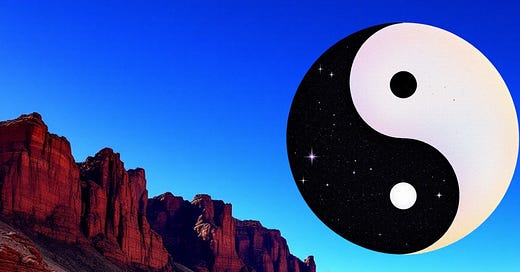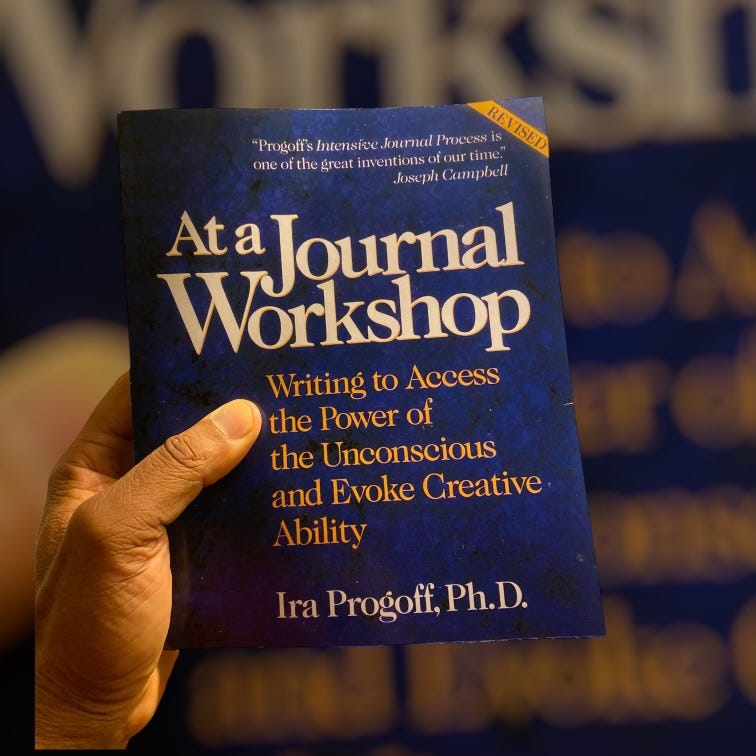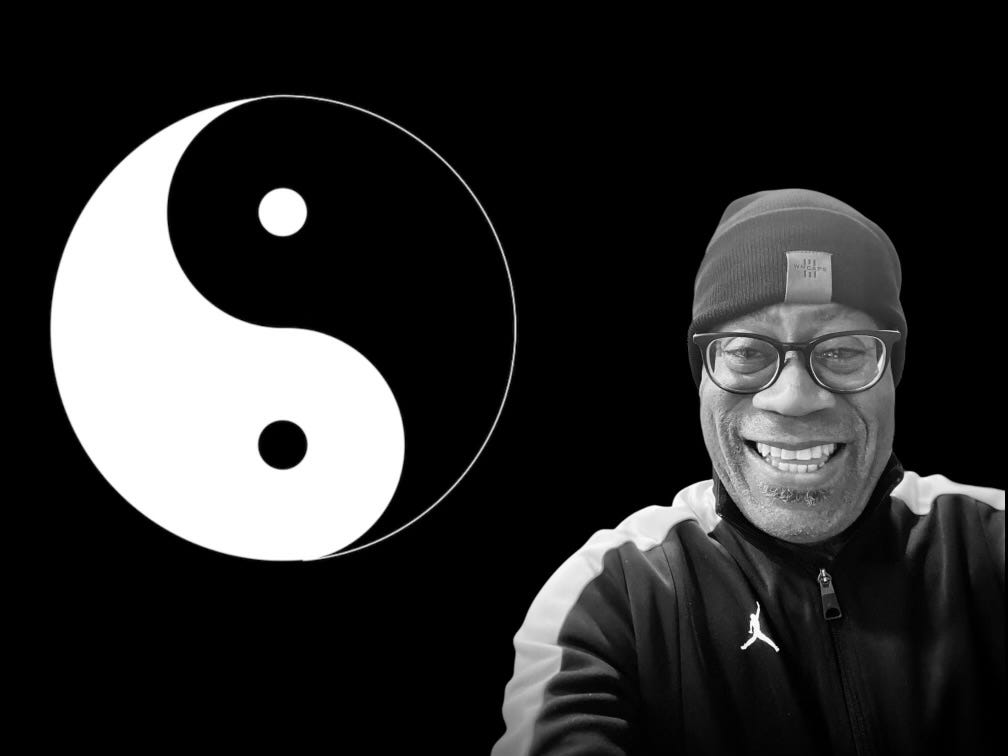It was two years after my 2012 divorce, a time when I believed I had emerged from the wreckage of my old life whole and victorious.
My ego, loud and assured, was patting me on the back, whispering: “I got this. I’m good.” I truly thought the hard part was over. Healing, to me, had become a destination I thought I had reached.
Then came the conversation with my girlfriend at the time, who gently reminded me of a deeper truth: life is not an ongoing process of healing because it’s not something to be “fixed.” Instead, life is a continuous practice—a movement of growth, testing, and transformation.
It was the kind of lesson that lingers, cracking open long-held illusions and forcing a reevaluation of everything I thought I knew.
This realization brought me to reflect on Chapter 12 of the Tao Te Ching:
“Thus, the wise fill the inner gut rather than the eyes, always sacrificing the superficial for the essential.”
The verse offers a subtle yet profound lesson: when we become enamored with outward appearances—achievements, milestones, and the external markers of “success”—we forsake the essential work within.
My self-assured ego had been feeding off superficial validation, namely, the belief that healing meant crossing a finish line. Yet the wisdom of the Tao teaches that the wise cultivate the “inner gut,” the core of their being, eschewing the surface for the deep and unnameable essence within.
Life, I realized, is less about chasing answers or closure and more about entering a dynamic process of being. It’s a journey best understood through Joseph Campbell’s articulation of the Hero’s Journey—a cycle of departure, initiation, and return that doesn’t conclude but perpetually invites us to grow.
In every challenge, we are called to leave behind old paradigms, test ourselves in unfamiliar territory, and return to our lives transformed. But this transformation is never static. It is fluid, cyclical, and demands continual engagement.
The aftermath of my divorce was a crucible, but my mistake was assuming that surviving the flames meant the work was done. As my girlfriend pointed out, the journey is about momentum, not conclusion. Healing isn’t about reaching a pristine version of yourself—it’s about being able to adapt, shift, and remain in conversation with life’s challenges.
Eastern philosophy, particularly Taoism, emphasizes this fluidity. Lao Tzu speaks of water, the softest substance, eroding the hardest stone. Similarly, life demands that we embody this fluidity, allowing ourselves to pivot rather than cling to rigid expectations or outcomes.
What struck me most during that conversation—and what resonates deeply in the Tao Te Ching—is the concept of non-attachment. When we fixate on “arriving” or achieving specific outcomes, we disconnect from the richness of the process itself.
The Tao teaches us to create momentum without attachment, to embrace growth without needing it to fit a predetermined shape. As Ira Progoff writes in At a Journal Workshop:
“Outward activity propelled from within is the essence of creative existence.”
This is not a philosophy of passive acceptance. It is an active, creative engagement with the world, propelled by the deep internal processes of our being.
Life calls us to act, to risk, and to create, but it also calls us to be flexible and unattached to the results of those actions. Growth is a rhythm, not a destination.
In the years since that pivotal conversation, I have come to see my life as a work in progress—a canvas I am constantly reworking rather than a masterpiece I aim to finish.
This mindset has reshaped how I approach relationships, work, and even myself. When we think we’ve arrived, we close ourselves off to further evolution. But when we understand that life’s purpose is not to arrive but to continue moving, we unlock the potential to live in alignment with our truest selves.
The process is humbling. It requires embracing the unknown and the uncertain, letting go of the need for control. Yet, as Campbell reminds us, this is the essence of the Hero’s Journey.
It’s not about vanquishing dragons or finding treasure—it’s about the transformation of the self through the trials we face. And these trials don’t stop. Each challenge is an invitation to deepen, to refine, to sacrifice the superficial for the essential.
In hindsight, my divorce was not a rupture to be healed or a failure to overcome. It was a portal, a moment that forced me to shed an old skin and begin anew.
The idea that I could “heal” and be “done” was another illusion my ego constructed to avoid the vulnerability of the ongoing process. It is through surrendering to the process—not conquering it—that we find liberation.
The Tao Te Ching reminds us:
“The wise fill the inner gut.”
This wisdom isn’t about gratification or resolution; it’s about centering ourselves in what truly matters. Life is an inner journey, and the road winds endlessly forward.
Along the way, we are called to walk with humility, presence, and a willingness to learn. The “destination” is the path itself—the daily practice of being human.
Join us in the New Year as a paid member supporter. Or feel free to tip me some coffeehouse love here if you feel so inclined.
Your contributions are appreciated!
Every bit counts as I strive to deliver high quality feature articles into your inbox on a daily basis.
Never any paywalls, just my raw thoughts which are open to everyone on what it means to be human.
Much Love In Expansion, Connection, and Freedom
Diamond Michael Scott — aka The Chocolate Taoist







I have always advised to friends going through divorce that it is not to be viewed as a failure, but lessons learned -for all parties! It is a growing & an evolution as all of life is. Doesn’t feel that way at the time, but all relationships & life are about growth & love.
And then I always suggest a divorce party because the divorced need not only support, but all of the silly kitchen items that are so enthusiastically given to newlyweds, but not those who are embarking on a new being. It’s all about the journey & those met & loved along the way:)